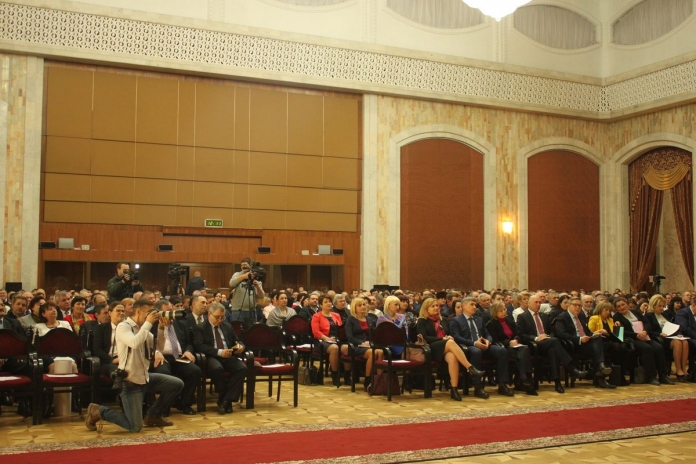On 01 February 2017, the Government of the Republic of Moldova together with the Congress of Local Authorities , German Development Cooperation through GIZ/’Modernization of Local Public Services in the Republic of Moldova’ project and United Nations Development Programme marked the day of Local Autonomy and Local Public Administration (LPA) Worker under the auspices of Prime Minister Pavel Filip.
‘Local Public Administration – basic pillar for success in the extensive process of reforming and modernizing the country’ was the slogan of the event.
Around 600 persons, among which representatives of Parliament, President’s Office, central public authorities, mayors, rayon presidents, ambassadors and development partners took part in the event.
Among the main goals of the initiative were listed: development of communication between LPA representatives, Government and development partners; enhancing the prestige of an activity at local level; supporting and motivating the best mayors, rayon presidents in the implementation of decentralization and strengthening of local autonomy reforms.
The Prime Minister pointed out in his message that he is aware of the problems faced by LPA workers. At the same time he is proud of the efforts the LPA employees make to solve communities’ issues and stated that they will have all necessary support to change things for the better.
E.S. Ulrike Knotz, Ambassador of Federal Republic of Germany to the Republic of Moldova, present at the event, mentioned that the mayors and local councils are the society’s positive forces and elements of hope. At the same time, Her Excellency underlined that strengthening local and regional levels is one of the two priority areas of cooperation between Germany and Moldova.
At the event, an informative exhibition on the results of local development projects’ activity was organised and relevant information materials were distributed to mayors and rayon presidents.
The project ‘Modernization of Local Public Services in the Republic of Moldova’ (MLPS) is implemented by the German Development Cooperation through GIZ and is financially supported by the German Ministry of Economic Cooperation and Development (BMZ), the Swedish Government, the Romanian Government, the European Union and the Swiss Agency for Development and Cooperation (SDC).






